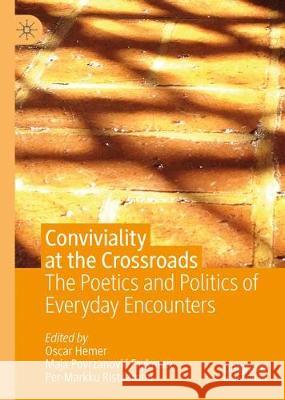Conviviality at the Crossroads: The Poetics and Politics of Everyday Encounters » książka
topmenu
Conviviality at the Crossroads: The Poetics and Politics of Everyday Encounters
ISBN-13: 9783030289782 / Angielski / Twarda / 2019 / 290 str.
Conviviality at the Crossroads: The Poetics and Politics of Everyday Encounters
ISBN-13: 9783030289782 / Angielski / Twarda / 2019 / 290 str.
cena 107,21 zł
(netto: 102,10 VAT: 5%)
Najniższa cena z 30 dni: 107,21 zł
(netto: 102,10 VAT: 5%)
Najniższa cena z 30 dni: 107,21 zł
Termin realizacji zamówienia:
ok. 16-18 dni roboczych.
ok. 16-18 dni roboczych.
Darmowa dostawa!
Kategorie:
Kategorie BISAC:
Wydawca:
Palgrave MacMillan
Język:
Angielski
ISBN-13:
9783030289782
Rok wydania:
2019
Dostępne języki:
Ilość stron:
290
Waga:
0.63 kg
Wymiary:
21.01 x 14.81 x 2.39
Oprawa:
Twarda
Dodatkowe informacje:
Wydanie ilustrowane











